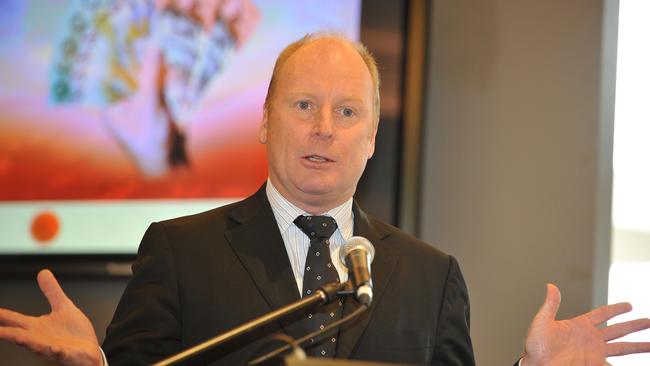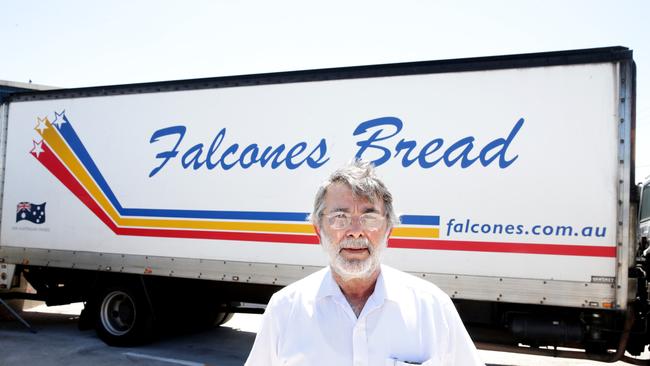Strategy for recall all part of planning
THE recall of Nannas brand berries has dominated headlines and raised serious questions about food standards, especially for imported products.

THE recall of Patties Foods’ Nannas brand berries has dominated headlines and raised serious questions about food standards, especially for imported products.
Yet within the headlines there is a missing piece of information. Without excusing any product that potentially causes its customers harm — and Patties is still testing its berries to see if it is the source of the hepatitis A — it needs to be remembered that there are product recalls every month.
For manufacturers and processors of any product, especially food products, having a strategy for a product recall should be a vital part of the overall business plan. It is essential risk mitigation.
According to the ACCC website, where a register of recalls is kept, since the beginning of 2012 (so just over three years ago) there have been 191 product recalls of food and grocery items, though I admit there is some double counting in this as the same recalls can appear in different categories. But it gives you a sense of the scale of the issue.
It also leaves out other recalls of clothes, toys, cars and myriad other products. And although the Patties situation is serious and has a potential widescale impact on the community, it is not alone.
Among the list of companies that have recalled products, all of the supermarkets — Woolworths, Coles, Metcash and Aldi — feature prominently. Apart from the Nanna’s Mixed berries and raspberries, and the Creative Brands mixed berries, other products recalled this year include crocodile meat, Chinese pork, black olives, lamingtons and Schweppes Indian Tonic Water (because of an omission on its labelling).
As the boss of Patties, Steven Chaur, told me this week: “No company goes out to intentionally poison its customers.”
It is not the first time Patties has had products recalled. Its Four ‘N Twenty pie brand had pasties recalled in 2013 (for potential foreign matter) and in 2012 its beef and potato frozen pies were recalled for the same reason.
As soon as a company realises it needs to recall a product a set of legal procedures kick into place. The government body that needs to be immediately contacted will differ, depending on the product. In the case of food products, it is Food Standards Australia New Zealand (FSANZ).
Procedures are then urgently put in place for notification, recall strategy, retrieval of the product and reporting on the recall.
Only then can the company go into recovery mode. Clearly it needs to find the source of the contamination, rectify the problem and prevent a repeat. If the source is difficult to identify (I’m thinking here about the Patties berries, if they turn out to be the source of the hepatitis A breakout) then the business can quickly be turned upside down.
But recovery, in most cases, is possible, provided the problem is fixed and the company can withstand the cost of the recall and any legal claims for damages that follow.
This is why all companies, large and small, need a strategy in place well ahead of any mishap.
SOMETHING TO CHEW ON — THE STRUGGLES OF A BAKING EMPIRE
ANDREW Falcone is a proud seventh generation bread maker.
His family came from Messina in Sicily, where it had been baking for decades. With a growing migrant population in the 1950s, it was a simple decision to open a bakery — initially in Balmain — to create jobs for the family.
Australia’s tastes at the time were — to put it mildly — whitebread. The only bread was the fluffy stuff of the English and Irish.
But as their business expanded, the Falcones moved to Port Kembla, to cater for the 22,000 largely migrant population working at BHP’s expanding steelworks.
It worked. The business kept growing and at its peak was using 100 tonnes of flour a week to bake more than 250,000 loaves. Their miller claimed — quietly — the Falcones were the largest independently owned breadmaker in the country. Apart from its own Falcone brand, the family was making generic bread for supermarkets.

But three years ago disaster struck. A metal component from a piece of machinery broke off and got through all checking measures.
As Andrew Falcone says: “You have your heart in your mouth, you say I hope no one chews on a piece of metal.”
And though it had not happened before, the family immediately put in place a plan that was partly their own and part imposed, issuing a recall of their products.
The recall cost the business an estimated $250,000. “It’s very, very costly … the sort of thing that can break a company. It’s hard to stomach,” says Andrew.
But there is a turning point. “Once you become recertified to manufacture … you have a cup of coffee, then you say … ‘how do we recover from this?’”
The business did recover, and took about three months to get back to previous production levels.
“There is an enormous cost for the recall because your infrastructure (costs) don’t change and your fixed costs don’t move, but the sales are not there. You have to keep pushing forward.”




